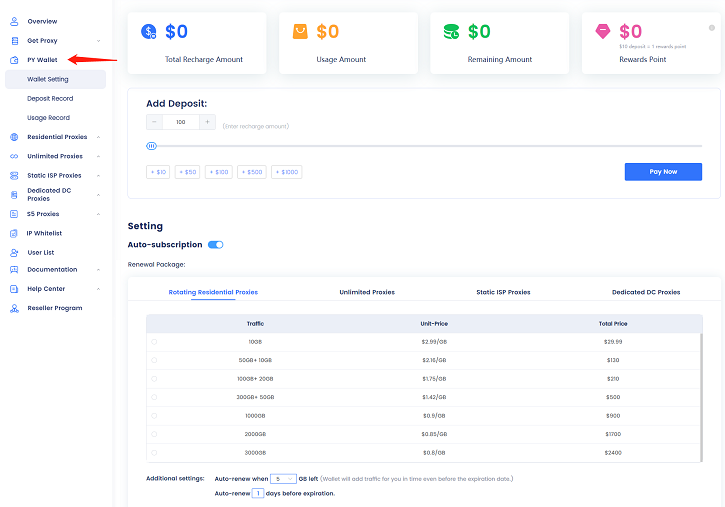User blogs
Types of Proxy Servers
1. Transparent proxies
Most transparent proxies can be detected close to a corporate network’s external perimeter. It is called transparent because it relays the connection between the user or client and the web without modifying either the request or its response. Transparent proxies are installed mainly to filter or cache content. Such technology may be used by businesses and educational institutions to restrict access to specific websites. To cache data and filter content, libraries may also employ transparent proxies.To get more news about internet proxy servers, you can visit pyproxy.com official website.

2. Forward proxies
In forward proxies, a client’s requests are forwarded by forwarding proxies to a web server. A forward proxy is used to deliver data from groups of users on an internal network, acting as an intermediary between the clients and the internet. It examines each request that’s sent before determining whether or not to establish a connection and also takes actions on the user’s behalf, such as routing the request to the correct destination.
Internal networks that require a single point of entry are best suited for forwarding proxies. It offers network security for users and enables simple administrative control. A forward proxy, however, might make it more difficult for an organization to meet each end-user’s specific needs.
3. Anonymous proxies
Anonymous proxies are servers that conceal the client’s IP address, allowing access to resources blocked by firewalls or IP address bans. They could be utilized to increase privacy or as a defense against cyber attacks.
Internet activity cannot be tracked or intercepted when using an anonymous proxy. This is the best option if a user wants to access the internet completely anonymously. While anonymous proxies offer some of the best identity protection available, there are some disadvantages as well – that is why high anonymity proxies are essential in certain use cases.
4. High anonymity proxies
Highly anonymous proxies display a non-proxy public IP address and conceal the fact that clients are using them. As a result, they not only conceal the client’s IP address but also enable access to websites that might restrict proxy servers. A high anonymity proxy goes one step beyond standard anonymity.
Users’ information is deleted before the proxy attempts to connect to the target website, which is how it operates. The server is best suited for users who require absolute anonymity, such as employees who don’t want their activity linked to their employer.
5. Distorting proxies
While concealing its actual identity, the proxy presents itself to a website as a different IP address. Users who want to conceal their location when using the internet – for example, when running an investigation or penetration test – can consider using this technology.
This kind of proxy gives people the benefit of masking not only their identity but also the proxy’s identity, giving the impression that users are browsing from a particular country. Nevertheless, some websites automatically prohibit distorted proxies, which may prevent end users from accessing those websites.
6. Reverse proxy servers
Reverse proxies are effectively forward proxies in reverse; they are like a proxy server that often forwards requests from the internet to users in an internal network via a firewall.
Users’ access to web servers hosting sensitive data is controlled and tracked by reverse proxies. A firewall routes user requests to the reverse proxy across the internet. If the proxy approves the user’s request, it obtains this data from the web server and responds to the user. Before receiving the requested data from the server, a reverse proxy will first see if it is already cached.
Web scraping has become increasingly crucial for businesses across various industries. It helps to streamline and automate repetitive but important tasks like market research and competitor analysis. To highlight, one of the popular tools employed is Scrapy.To get more news about software ip, you can visit pyproxy.com official website.
Written in Python, Scrapy is a robust web scraping framework with extensive features and functionalities that make it easy for developers to create and launch bots that collect data from across the internet. Its ease of use and extensibility make it a popular choice among developers.
Importance of Proxy to Web Scraping
Regardless of the tool you’re using, getting blocked is a common challenge faced by web scrapers as websites employ various techniques to identify and restrict bot activity. One such commonly used technique is IP-based blocking.
Every device on the internet has a unique IP address transmitted along with a web request. Websites often track the pattern and frequency of requests from a particular IP address to identify suspicious activities. If a particular IP address or range of addresses is observed to be sending a high volume of requests in a relatively short period, the address may be blocked or restricted. This is often the case for plain web scraping using any tool, like Scrapy.
IP blocks and other challenges, like honeypot traps and CAPTCHAs, can disrupt your scraping efforts and lead to interrupted or incomplete data extraction. To avoid this, you must adopt anti-blocking strategies, one of which is using proxies.
Using Proxies With Scrapy
With Scrapy, you can use proxies in two ways: the Scrapy middleware and a custom proxy middleware.
The Scrapy proxy middleware lets you tap into a pool of proxies, free or premium, and automatically route your requests through different proxies while ensuring that you’re using active proxies. Although free proxy pools are often unreliable and easily get blocked, this provides a baseline for implementing premium and reliable ones.
You can develop and use a custom proxy middleware if you have specific requirements or want to implement advanced proxy management. Using custom middleware gives you more control in customizing proxy rotation and credentials and integrating with third-party proxy services.
Using proxies with Scrapy offers several benefits, such as increased anonymity, the ability to scrape from geographically restricted websites, and improved reliability by distributing requests across multiple IP addresses.